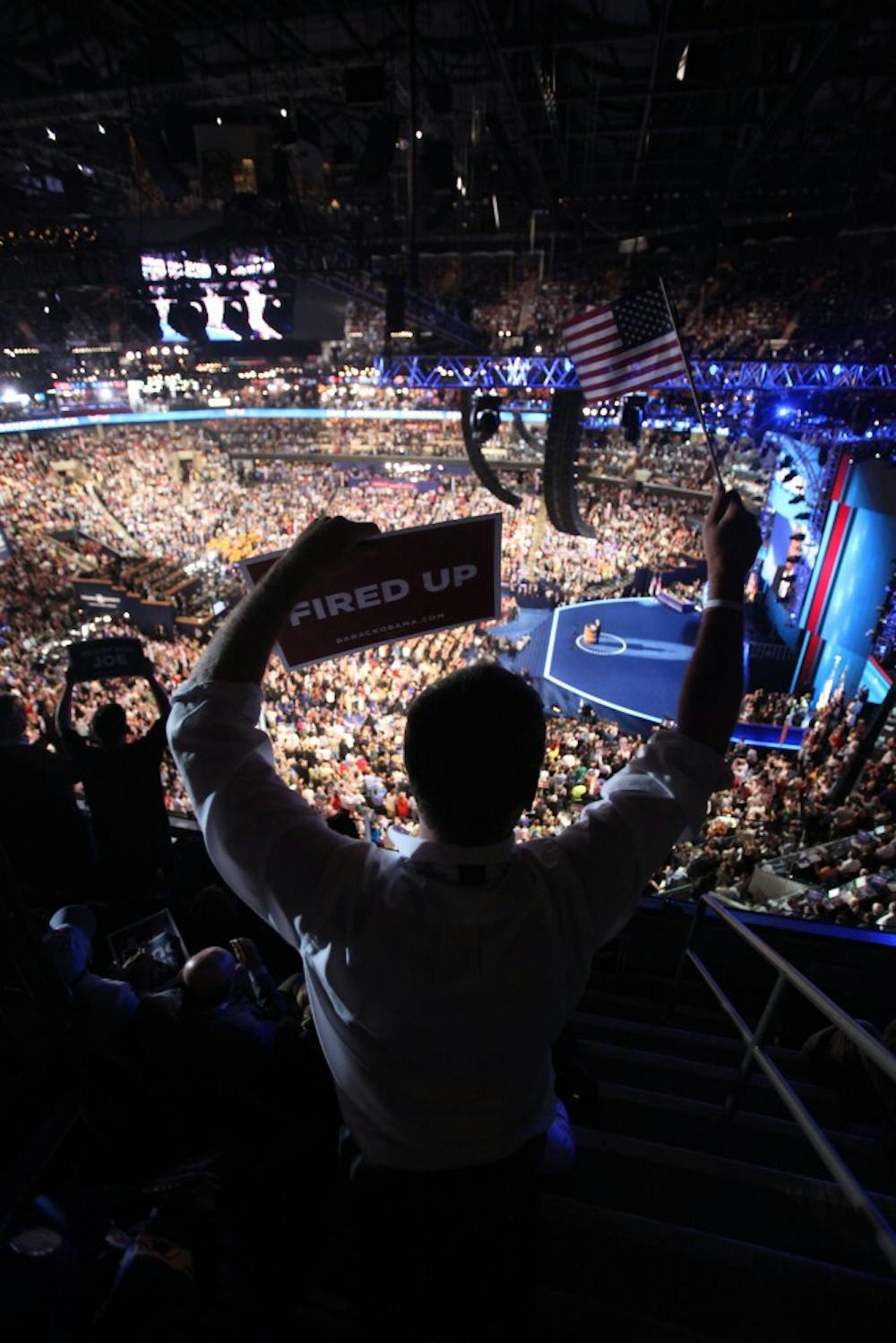“That’s what we can do in the next four years, and that’s why I’m running for a second term as president of the United States.”
Appealing to students
In addition to economic and energy-related initiatives, the president also put forth a particularly ambitious proposal to curtail the rising costs of higher education — cutting the growth of college tuition rates in half over the next 10 years.
For decades, college prices have increased at a higher rate than the prices of other goods and services.
Obama reiterated his efforts to maintain college access and affordability in an appeal to young voters. The 18 to 29-year-old demographic was crucial to Obama’s victory in 2008, especially in battleground states such as North Carolina, where the president won by about 14,000 votes.
“No family should have to set aside a college acceptance letter because they don’t have the money,” he said.
Obama held rallies at UNC and other college campuses in the spring to voice support for maintaining a lower interest rate of 3.4 percent on subsidized federal loans, stressing a higher rate would translate into an average of $1,000 in additional debt for more than 7 million students nationwide.
Congress compromised to prevent the rate from doubling on July 1.
While Obama’s budget proposal would increase the maximum award for federal Pell grants, which are targeted toward low-income students, vice presidential candidate Paul Ryan advocates a markedly different approach: The U.S. House Budget Committee chairman’s proposal would repeal recent expansions to Pell grant eligibility and set a maximum award level of $5,550 for aid recipients.
Both Ryan and Romney have advocated for only awarding federal subsidies to the most needy — arguing that more available financial aid allows colleges to raise tuition rates — and raised concerns about the sustainability of the Pell grant program.
Robert Reid, N.C. communications director for Romney’s campaign, said Obama’s policies have only “inflated” the costs of higher education. But more importantly, the economic situation for college graduates has only worsened throughout the president’s first term, he said.
According to Generation Opportunity, a conservative group that aims to mobilize young voters, the unemployment rate among 18-to-29-year-olds was 12.7 percent for July. That’s 4.4 percent higher than the national rate of 8.3 percent.
“(College graduates) want to build a career for themselves, but they don’t have those opportunities — that’s where there’s disappointment,” Reid said. “No amount of pandering or distortion is going to change that.”
To get the day's news and headlines in your inbox each morning, sign up for our email newsletters.
The deciding factor
By all accounts, the economy will be the deciding factor in the election.
During his speech, Obama said there are no easy solutions or quick fixes to addressing the nation’s worst economic malaise since the Great Depression.
“I won’t pretend the path I’m offering is quick or easy. I never have,” he said. “You didn’t elect me to tell you what you wanted to hear. You elected me to tell you the truth. And the truth is, it will take more than a few years for us to solve challenges that have built up over decades.”
Obama’s campaign often cites the creation of 4.5 million private-sector jobs in the last 29 months as evidence that the economy is improving. Yet according to the Center on Budget and Policy Priorities, only about 4 million of the 8.7 million jobs lost between the start of the recession in December 2007 and early 2010 have been restored.
Obama’s speech was likely designed to generate positive media coverage in light of August’s jobs report, which will be released today.
The Romney campaign claims the economy will continue to sputter if Obama is re-elected and Romney has the private-sector experience to create more jobs.
The campaign has also criticized Obama for excessive federal spending. The U.S. Government Printing Office estimated national debt increased by $4.5 trillion between fiscal years 2009 and 2012. Obama says much of that spending was necessary to boost the economy and prevent a deeper recession after the recent financial crisis, but polls indicate the public remains critical of the president’s economic performance.
Though Americans consider Obama the more likeable candidate, 54 percent to Romney’s 31 percent, they view Romney as the candidate better able to handle the economy by 9 percentage points, according to a USA Today/Gallup poll conducted before both parties’ conventions.
Reid, of Romney’s campaign, said voters should focus on their own economic situation when casting their ballots.
“What’s most important to realize is that President Obama is offering more of the same,” he said. “People can’t look at themselves in the mirror and say that they are truly better off than they were four years ago.”
Obama looked forward in his final pitch to Americans before the last stretch of the campaign season, speaking directly to voters about the competing visions offered by the campaigns.
“When all is said and done — when you pick up that ballot to vote — you will face the clearest choice of any time in a generation,” he said.
“Over the next few years, big decisions will be made in Washington … decisions that will have a huge impact on our lives and our children’s lives for decades to come.”
Contact the desk editor at state@dailytarheel.com.




